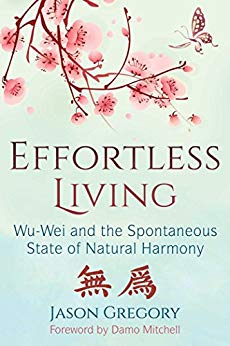

By
Jason Gregory
Reviewed by Henry Reed
If ever there were a intriguing paradox, it is the one that comes from "non-dual awareness," the traditional term for what we think of as "enlightenment." Coming to realize that consciousness of awareness is our true reality and that the world "out there" is purely of the imagination, there is a sense of profound acceptance, a cessation of striving, yet with all the conflicts and challenges of "normal life." A couple of things account for this bizarre situation, hard for someone who has not had the experience to understand why there would exist the conflict between the real and the imaginary. Even though enlightened, we still have to eat. Choices are required. Sometimes the choice is very hard, creating tension. Yet the tension is accepted, there is no overriding agenda, and things have a way of working out--effortlessly, if one is so willing.
There are so many perspective on non-dual awareness. Some focus on renunciation as a way of distancing oneself from the pressures of the senses. Others have the experience thrust upon them, unbidden and unexpected, as the world suddently appears as if on a moview screen, actually flat, yet with a visual hint of perspective. Reality suddenly seems unreal, only the witness is real. It is as if a tree falls in the forest and there's nobody to have the experience of hearing it, and so the fall is silent. Consciousness rules, not the physical world.
This current book I've been exploring treats the implications of no-dual awareness primarily from the Taoist perspective. I liken it to the axiom of inherent harmony, the life is a like a huge symphony orchestra, perfectly in tune and in rhythm, the orchestra of life plays harmonic music, and we, our lives, our experiences, our being, is a part of that harmony. It natural and pre-existing and its essence lives and expresses through you, too! What is the secret key to experiencing this reality? Effortless Living.
Getting into the zone, or entering the zone, are ways our language has often expressed the mystery of surfing through life's experiences. There is the assumption of the unitive, harmonious, creatively expressing Whole as One. There is the psychology of the great divide: those experiencing consciousness via the prism of separation and those experiencing consciousness as being one with all that is. To cease being the former and to become the latter, "simply" "accept" your momentary "experience" as a "perfect" "expression" of the mysterious, creative "Oneness." All those words quoted are so surrouned with the marks to remind you that just because you recognize the word it doesn't mean you understand what the word is pointing to.
One of the things that makes effortless living effortless is that the being who wishes to push the river experiences stress, whereas going with the river's current is effortless. That is, effortess as long as you accept where the river is taking you. Reading Jason Gregory's book is one way of engaging with the pre-existent harmony, as his writings remind us of the hidden truths. The way is Zen like in that transformation can occur in an instant, even though it might take a lifetime to learn to ride that horse comfortably. On the other hand, there are certain traits, habits, or perspective that help facilitate a readiness for awakening, that help create a trust in the harmony of life.
One of the attributes that appealed to me was what the author called "intelligent spontaneity." Having explored and written about "channeling one's higher self," which I generalized to be "spiritually prepared improvisation," I was pleased to revisit the congruence between being in the flow of Tao and channeling (allowing a more all inclusive spirit of life to guide my moment to moment experience). Is it really as easy as being lazy? Being sensitive to having to make too much effort to accomplish something might be an important clue that you have drifted out of the flow, so in some ways being lazy could be helpful as you'd be more sensitive to the feeling of having to exert effort.
Readers will notice and have a reaction to the principle that YIN should predominate, with YANG providing, now and then, a bit of focus. The author describes the true purpose and intelligence of the martial arts, which is to learn the power of acceptance in a situation that would seem to call for more Yang than Yin. But the true power of the yin consciousness reveals itself in the willingness to accept what is so completely that one's actions are spontaneously responding to what the senses cannot yet perceive but is immediaty recognized by the intuitive heart. Trust in that reality becomes the most valuable asset.
In today's political climate, it is interesting to read the idea of a Russian utopian, Peter Kropotkin, who theorized that if government/society could be so arranged that folks followed the calling of their flow, life would automatically re-arranged itself into a harmonic pattern, with no need for a government to create laws. I wish there was more to read about that idea. It is rare that books on non-dual awareness take such a global vision--what if everyone were enlightened, how would be behave toward one another? Reading Effortless Living provides a clue.